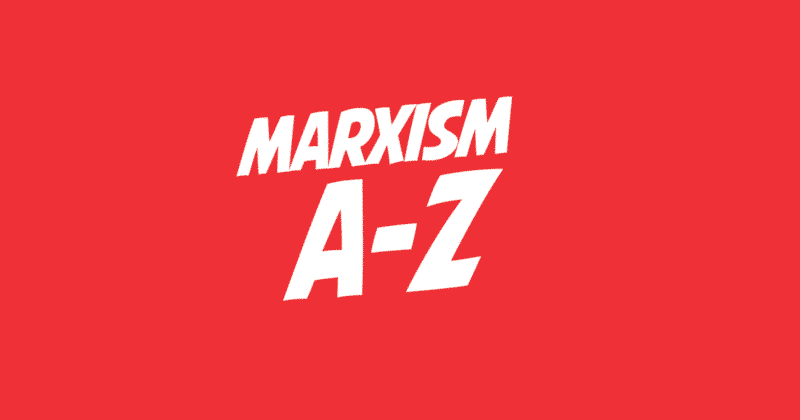Bolshevism
B is for Bolshevism
Bolshevism is the model of democracy and unity that won the world's first socialist revolution
K is for Kollontai
Alexandra Kollontai made three decisive contributions to revolutionary socialism.
Red October: The working class takes power
IN THE February Revolution of 1917, the workers and soldiers of Petrograd rose in spontaneous revolt against the hardships caused by two and a half years of war. Civilians were verging on starvation, while those fighting suffered horrendous losses – 1.5 million had been killed, five million wounded, with millions more taken prisoner. Demonstrations by […]
The renewal of Bolshevism: Lenin’s April Theses
Lenin’s April Theses, at 479 words one of the shortest of his major works, represented a qualitative advance in his strategic thinking, effected a transformation of the Bolshevik Party’s programme and formed the blue print for the victorious October Revolution that, in turn, changed the world. Nonetheless, the theses built on the previous achievements of […]
The Bolsheviks and the revolutionary struggle for Women’s Liberation
By Joy Macready The 1917 Bolshevik government advanced a revolutionary programme for women’s rights, struggling to break with the backwardness and prejudice of Russia. The Bolsheviks argued that for women to be liberated, they would have to be relieved of their semi-slave status within the family. This would only happen if the state, now based […]
Revolutionary Women: Konkordiya Samoilova
Konkordiya Samoilova was born in 1876 in Irkutsk, Siberia. Her father was an Orthodox priest. Samoilova graduated with a gold medal from the gymnasium and moved in 1896 to Saint Petersburg. There she studied, like Vladimir Ilyich Lenin’s wife Nadezhda Krupskaya before her, at the Bestuzhev Higher Women’s Institute. These bodies were the only higher […]
Bolshevism and the fight for women's liberation
In this article Joy Macready examines the relatively unknown history of the Bolshevik’s ground-breaking policies for the liberation of women, which were subsequently reversed in the 1930s under Stalin. The 1917 Bolshevik government advanced a revolutionary programme for women’s rights, struggling to break with the backwardness and prejudice of Russia. The Bolsheviks argued […]
The Bolsheviks, the Red Army and the Civil War in Russia
In 1917 the working class took power in Russia with remarkably little resistance from the bosses. But shortly afterwards the capitalists regrouped and gathered support from the imperialist powers to wage a bloody war on the young communist regime that became known as the Russian Civil War. Ninety years ago in 1919 was a key […]
How Bolshevik women fought for liberation
In celebration of International Women’s Day and as part of an ongoing debate about the principles of women’s organisation and the revolutionary movement, Joy Macready looks at the history of early Soviet Russia and its lessons for today The Marxist position on women’s liberation owes a great debt to a remarkable group of women in […]
The Leninist Party and Democratic Centralism
Here we republish an article from 1998 which sets out our own understanding of the role of democracy, leadership and accountability in revolutionary organisations. “The party is not an arena for the assertion of free individuality, but an instrument of the proletarian revolution”. Trotsky’s words from 1939 form the background against which Lenin himself approached […]
Revolutionary Women: Ludmila Stal
Our series on the lives and struggles of great revolutionary women continues with Marija Cubalevska’s look at the life of Russian underground militant Ludmila Stal Ludmila Stal was born in 1872 in Yekaterinoslaw in the Russian Empire, which today is Dnipropetrovsk in Ukraine. Although her family were well-off, she was a rebel from her early […]
Revolutionary Women: Yevgenia Bosch
This site begins a new series on revolutionary women to highlight their often forgotten role in the communist movement. Katja Teran starts the first in the series on Yevgenia Bosch Yevgenia Bogdanovna Bosch was born on 11 August 1879 (23 August after the calendar was modernised) in Ochakiv in the Ukraine. Victor Serge, the communist writer, […]
Party and Programme: Bolshevism Versus Opportunism 1903 – 1912 – Part 2
This article is devoted to the debate on the political and organisational heritage of Trotskyism and Leninism to which the Workers’ Socialist League, the International Marxist Group and the International-Communist League contributed in the 1970s What is being debated? The IMG have centred the debate around their own current ’unity offensive’. In the series of […]

